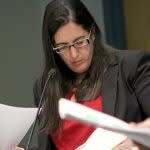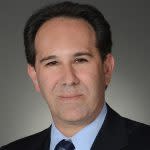Medical Marijuana Dispensaries Compete for Restricted Retail Space in South Florida
gallery ids="53174,53173,53172,53171,53170,53169,53168"
At least one type of retail tenant is in expansion mode in Florida — yet it's facing hurdles setting up shop.
Medical marijuana dispensaries are pushing to open across South Florida but are limited in their options for new locations by local regulations and an almost-blanket inability to open in mortgaged buildings, attorneys and brokers working with dispensaries and landlords said.
This has left the 14 licensed medical marijuana operations in Florida — which under state law are required to do everything from grow to package and sell — tussling over the available sites.
"There's definitely a great deal of competition," said Joshua Leavitt, Florida market president for Chicago-based Green Thumb Industries, which has a Deerfield Beach dispensary and plans another four in the region. "That's why we spend a lot of time finding the right spots. There's 13 other license holders that are all vying for similar locations."
GTI has its dispensary at 2305 W. Hillsboro Blvd. and is opening a second at 308 N. Federal Highway in Hallandale Beach after getting city approval. Others in Delray Beach, suburban Kendall and West Palm Beach are on tap this year.
For their part, public agencies say they have good reasons to ban or regulate the unwanted-by-some dispensaries.

Miami city attorney Victoria Mendez.
Miami has no rules on the books but denied the first application. City Attorney Victoria Mendez noted marijuana use still is illegal under federal law.
Homestead, where dispensaries are prohibited under an ordinance passed last September, called the cash businesses "inherently attractive targets for criminals." Dispensaries generally can't use standard bank accounts.
In Miami Beach, where the regulation in February set a 1,200-foot boundary between dispensaries, Commissioner Joy Malakoff cautioned the city needs to prepare for the possibility of legalized recreational use, the Miami Herald has reported.

Keith Poliakoff is partner at Saul Ewing Arnstein & Lehr in Fort Lauderdale.
Dispensaries are keeping that in mind as well, said attorney Keith Poliakoff, who represented GTI in Hallandale Beach.
"The medical community is a finite number of potential users so that may not lend itself to numerous retail locations. However, most of the dispensaries believe that Florida at some point will potentially legalize the use recreationally," said Poliakoff, a partner at Saul Ewing Arnstein & Lehr in Fort Lauderdale.
This session House Bill 1117, whose companion is Senate Bill 1780, sought to allow recreational use by adults, but it died without a hearing. Still, Gov. Ron DeSantis signed his first bill in March to lift a ban on smoking medical marijuana.
"A lot of dispensaries are not open yet. They are just simply getting in there and doing the ground work and cornering the market on areas to be," Poliakoff said.
Location, Location, Lawsuit

Native Realty Co. founder and CEO Jaime Sturgis in Fort Lauderdale.
Broker Jaime Sturgis has been touring locations with Trulieve and two undisclosed providers seeking densely populated and growing locations. Boca Raton is one choice, along with Fort Lauderdale's emerging areas along Northeast 13th Street and in the once neglected but now thriving Flagler Village.
"More recently, because of the position Gov. DeSantis just took, I think that's emboldened people and they feel more confident in the political stability of this sector moving forward under his tenure," Sturgis said. "That's given people the vote of confidence that they need to continue expanding in the industry."
But finding urban core locations is tricky, said Alexander Brown, executive director of office services at Colliers International South Florida.
Under state law, counties and municipalities can't limit the number of dispensaries. They can either ban them or regulate them in the same way they regulate pharmacies. The state also bans dispensaries within 500 feet of schools.
But some cities have expanded the distance restrictions. In Fort Lauderdale, dispensaries must be no less than a mile from each other and no closer than 1,500 feet to a school, park, library and day care.
Brown said distance rules can be hard to handle.
"In a downtown area, you might not see a day care. However, a building two buildings over, on the third floor might have a day care center that's not even known. If that occurs, you are typically blown out of the water," he said.
Sturgis, founder and CEO of Native Realty Co. in Fort Lauderdale, has pinpointed several possible locations in the city.
Boca Raton imposed a ban but night reconsider it, directing staff members to draft a new ordinance, according to city spokeswoman Chrissy Gibson. The move came after a February workshop attended by providers, doctors, patients and other stakeholders.
Miami Beach and others opted for regulations, then made them apply to pharmacies but grandfathered existing pharmacies.
MedMen Enterprises Inc. in a March 14 lawsuit filed by Akerman partner Lawrence Silverman against the city says it signed a 10-year lease for 1428 Alton Road and previously received city approval for the site. But the new distance requirement means it's too close to an existing dispensary opened by Surterra Wellness at 1523 Alton Road.

Jonathan S. Robbins, chairman of Akermans Cannabis Practice, in Fort Lauderdale.
Fort Lauderdale attorney Jonathan Robbins, who oversees the cannabis practice at Akerman, said the new Miami Beach rule "applies to pharmacies as well. But the target wasn't Walgreens. The target was MedMen."
The city said it stands by its distance requirement, called the lawsuit "devoid of any legal validity" and "meritless."
Chief deputy city attorney Aleksandr Boksner said by email, "The lawsuit improperly seeks to challenge a lawfully enacted ordinance, based solely upon the plaintiff’s evident misinterpretation of the law."
The four Fort Lauderdale buildings Sturgis has been showing have no mortgages.
"These dispensaries have to find properties that are owned outright with cash, don't have any debt on them, and the concern from a landlord's perspective is if and when you try to sell the property from a finance perspective you are going to have an issue," Sturgis said. "You are pigeonholed only selling to another cash buyer. It's an interesting caveat to the market that's another layer of complexity."
Industrial Space
The 14 license holders aren't pushing for grow houses in industrial space, the attorneys and brokers said.
But expect that to change if recreational use is approved. If states with legalized marijuana offer an example, the industry could breathe new life into industrial real estate.
In Colorado, old warehouses that were functionally obsolete were resuscitated by the industry, said Patrick Willis, vice president at CRESA in Miami. Providers don't need modern facilities with dock-high loading and high ceilings.
"They just need four walls and enough power and that they can seal up enough to control the environment. Their target is usually very old buildings, stuff built in the '80s or before if they'd like to get something cheaper," Willis said.
Safe cash storage is another need.
"There's an entire asset class of industrial that's being built specific for this industry that is just designed to safeguard their money," Sturgis said. "People are developing these buildings just as massive safes, just to store cash. When it goes recreational in South Florida, that would be a big part of the business."
For now, though, the focus remains retail space.
"It's definitely an uphill battle in some senses," Sturgis said.
SOUTH FLORIDA DISPENSARY REGULATIONS
Unincorporated Miami-Dade County
Prohibited within 500 feet of schools, allowed in industrial zoning and cultivation sites in agricultural areas.
Unincorporated Broward County
Allowed in three business districts where pharmacies are permitted.
Unincorporated Palm Beach County
Prohibited within 500 feet of schools.
Miami
Denied the first application.
Fort Lauderdale
Allows one in each of four City Commission districts in business and industrial zoning at least a mile from each other and 1,500 feet from a library, park, day care and school.
West Palm Beach
Allowed in nonresidential areas at least 500 feet from schools.
Miami Beach
Limited to four areas and not within 1,200 feet of each other.
Homestead
Prohibited.
Boca Raton
Prohibited with possible reconsideration.
Doral
Prohibited.



